If you’re in search of accurate costs related to fixing basement flooding, you’ve come to the right place.
Here’s what you’ll learn by the end of this article:
- Root causes of basement flooding
- What to do if your basement floods
- How to solve basement water intrusion
- How to save money when fixing basement flooding
Basements and crawl spaces are open to water intrusion because of their location underground. Soil saturated with rainwater or groundwater puts hydrostatic pressure on your basement walls and can force excess water through your concrete.
The result is something no homeowner wants: walking downstairs to find a flooded basement.
Many people panic and don’t know what to do if they find standing water in their basement, and fewer know how to stop future flooding.
In this article, we will go over why water might be getting into your home, what to do if you find water accumulating in your basement or crawl space, and how to fix the problem permanently.
We will also include tips on how to save money when doing the necessary basement waterproofing repairs.
Table of Contents
- What Causes Basement Flooding?
- What Should You Do If Your Basement Is Flooding?
- How Can You Stop Basement Flooding From Happening Again?
- How To Save Money When Fixing Basement Flooding?
What Causes Basement Flooding?
First, you need to know why basements flood. Understanding the root cause of your wet basement problem will help you permanently solve the problem and get some peace of mind that it won’t happen again.
We will discuss the most likely reasons you may be experiencing a leaky basement.
Improper Waterproofing on Basement Walls and Floor
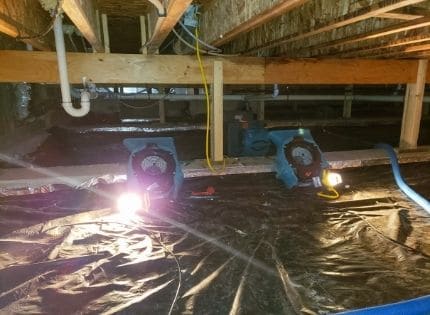
Waterproofing products are recommended and even mandated in most areas because of the likelihood of leaking.
There are different sealants available for interior and exterior use. Dampproofing, waterproof paint, concrete sealer, and waterproof panels or sheets are common liquid water and vapor barriers used on concrete walls and basement floors.
Plumbing Leaks
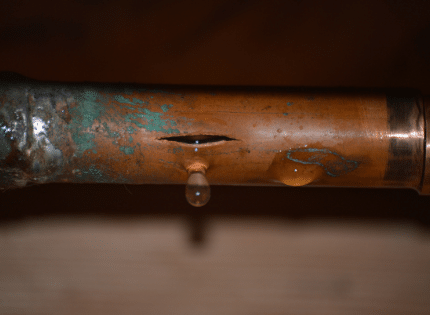
Your leaks are more than likely coming from inside your home if you find standing water or large amounts of water in your basement.
Water from the outside of your foundation usually comes in slowly, so heavy flooding is more common from leaks in your water lines or sewer backups.
Leaking domestic water lines and sewer lines can cause the most severe flood damage.
Improperly Installed Gutters and Downspouts
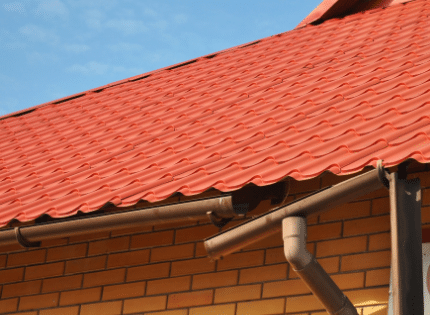
One of the more common causes of water intrusion is the poor installation of gutters and downpipes. Gutter systems move water from heavy rains away from your concrete and help limit hydrostatic pressure.
However, proper installation is needed for good drainage.
Clogged Gutters
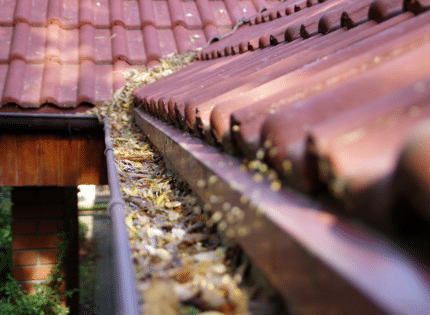
Leaves, sticks, and roof debris can clog gutters and make them useless for draining runoff. Even a small blockage can make water build up in your gutter and spill over the side.
The water then falls right next to your foundation, where it can saturate the soil and be the most likely to lead to water seepage into your basement.
Basement Foundation Leaks
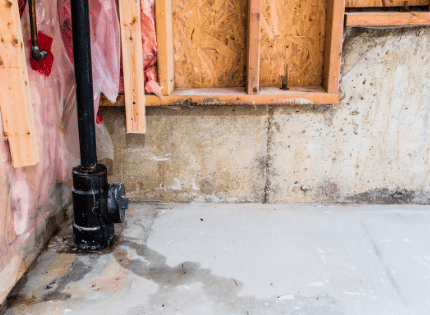
The cement used in your foundation’s construction isn’t waterproof and doesn’t offer complete protection from outside water.
Water can wick directly through solid concrete and seep in even more quickly through foundation cracks.
Additionally, wall openings around basement windows can leak, especially if your window wells aren’t properly drained.
Sump Pump Failure
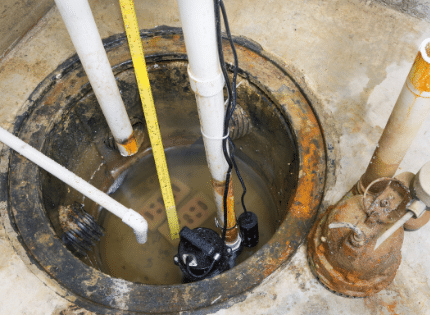
A sump pump sits in a ditch below your concrete slab and turns on a water pump once water is detected.
Standing water in your basement caused by another root problem could persist if your sump pump fails for some reason or if you have a power outage and no backup generator for your sump pump.
Water Heater Leaks
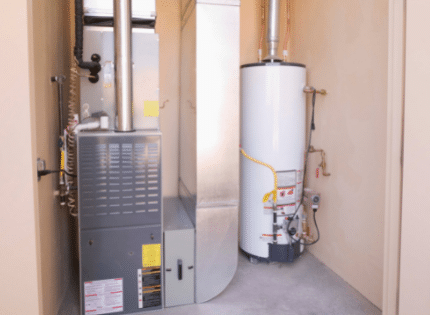
The last most common source of basement flooding is another that comes from inside your home.
Your water heater holds many gallons of water and has a constant influx of water from your water main.
Malfunctions in your equipment, burst pipes, or cracks in your hot water tank can cause severe flooding in your basement or crawl space.
Dealing with basement flooding? Regional Foundation Repair can help! Our teams are ready to take on any basement waterproofing problem. Just find the closest location near you or see one of our branches below:
